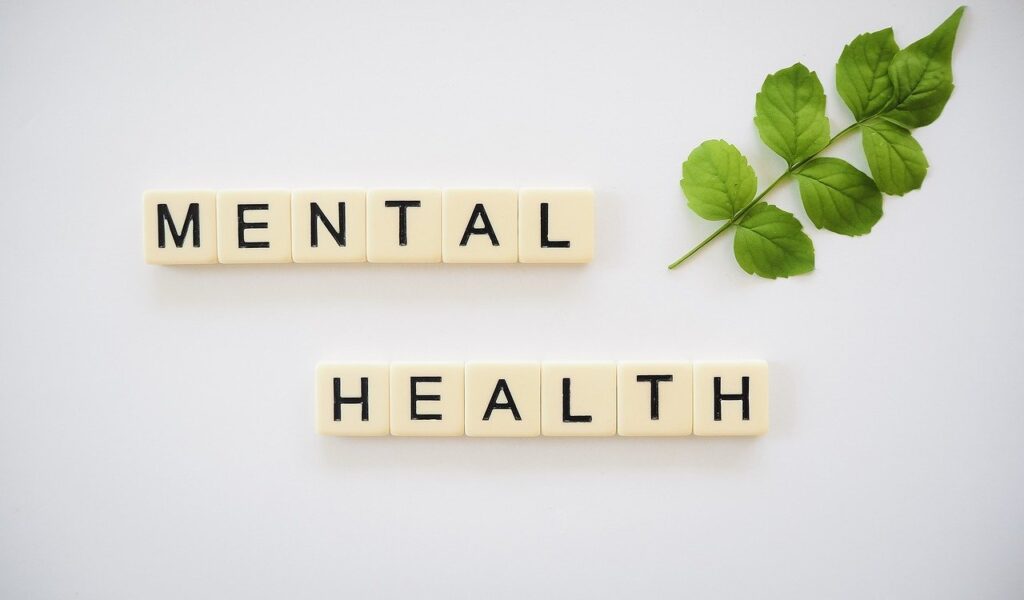
May was Mental Health Month and we’re continuing our mental health series. First things first — did you catch our recent post focused on mental health for children? If not, read it here.
In that post, psychologist Breta Collins shares that her No. 1 tip for parents is to take care of their own mental health. If you’re struggling, it’s far more likely that your children will struggle, too.
If you’re looking for a place to get started, here are some of our favorite mental health tips for parents.
Care for your basic needs
It might seem unnecessary to include this. But how often do you find yourself skipping lunch or choosing coffee over water? When our basic needs aren’t met, we’re more likely to be quick to anger, anxiety, be overwhelmed, and exhaustion. Eating nutrient-rich foods and moving your body every day should be top priority on your mental health care list.
Try carrying a snack and water bottle with you wherever you’re going and eating when you feed your kids. You can also participate in fun physical activities with your family, such as taking nature walks, playing an active game, and doing a yoga video together.
Prioritize bedtime – including yours
As a parent, it’s easy to fall into the habit of taking your children’s bedtime routines seriously but neglecting your own. Lack of sleep can cause irritability and anger and may lessen your ability to cope with stress. It can also lead to depression.
Creating a bedtime routine can be super simple:
- Decide on a bedtime.
- Stop using devices about 30 minutes before bedtime.
- Engage in a relaxing activity or two, such as drinking chamomile tea and listening to a 10-minute guided meditation.
Set boundaries around energy zappers
What tends to drain your emotional, physical, and mental energy daily? Email? Social media? Although reaching for that fourth cup of coffee might seem like the answer, it will probably leave you feeling even more zapped.
Maybe you try to limit news checking to 15 minutes each day and get to bed by 10 p.m. You could put your phone in a drawer when you’re with your kids or swap your afternoon coffee with a glass of water. Small changes can make a big impact!
Take mental health breaks
The easiest way to work these in? Use your kid’s screen time as mental health time for you.
Think of those minutes as a mental health boost: Catch up with a friend, journal your feelings, listen to a funny podcast, make progress on a creative project, or do a high-intensity workout.
Practice bite-sized behaviors
Again, small things can make a big difference. If you don’t know where to start, here are some simple-yet-effective things you can try for your mental health:
- Step outside to savor some fresh air
- Sit in the car to catch your breath
- Take a hot bath
- Process your feelings with your partner
- Watch a funny or inspiring show
Focus on activities that fill you up
This includes activities you do alone, and with your kids.
This could mean reading to your child as they fall asleep, then taking time to read your own favorite book. Maybe you teach them to bake brownies while singing Disney songs, then spend time painting or taking an online course to learn a new language.
Find creative ways to connect
It can be tough for parents to line up their timelines with other parents’ busy schedules in order to connect. But that doesn’t mean connection is impossible, and it’s such an important part of a healthy life.
One easy way to connect is with technology, using apps like Marco Polo, which lets you send video messages to your friends that they can listen to at any time. You also can start a two-person book club or schedule exercise dates.
Be gentle with yourself
Self-compassion is an important part of mental health, especially when you’re struggling and stressed out. On difficult days, acknowledge that you’re having a hard time and lower your expectations. Give yourself shame-free permission to skip the chores, eat another frozen meal, and increase screen time for your kids.
Remind yourself that you’re doing the best you can. Let yourself feel your feelings – and cry when you need to. If you feel selfish about caring for your mental health, remember that you’re a human being who deserves to feel and be well – just like anyone else.
Get extra support when you need it
If you’re struggling with your mental health, remember that there’s no shame in it. Millions of Americans struggle! Facing it head-on and seeing a professional is the best thing you can do for yourself and your family. Take control of your mental health journey. Scheduling a visit with your primary care physician is a great place to start.
